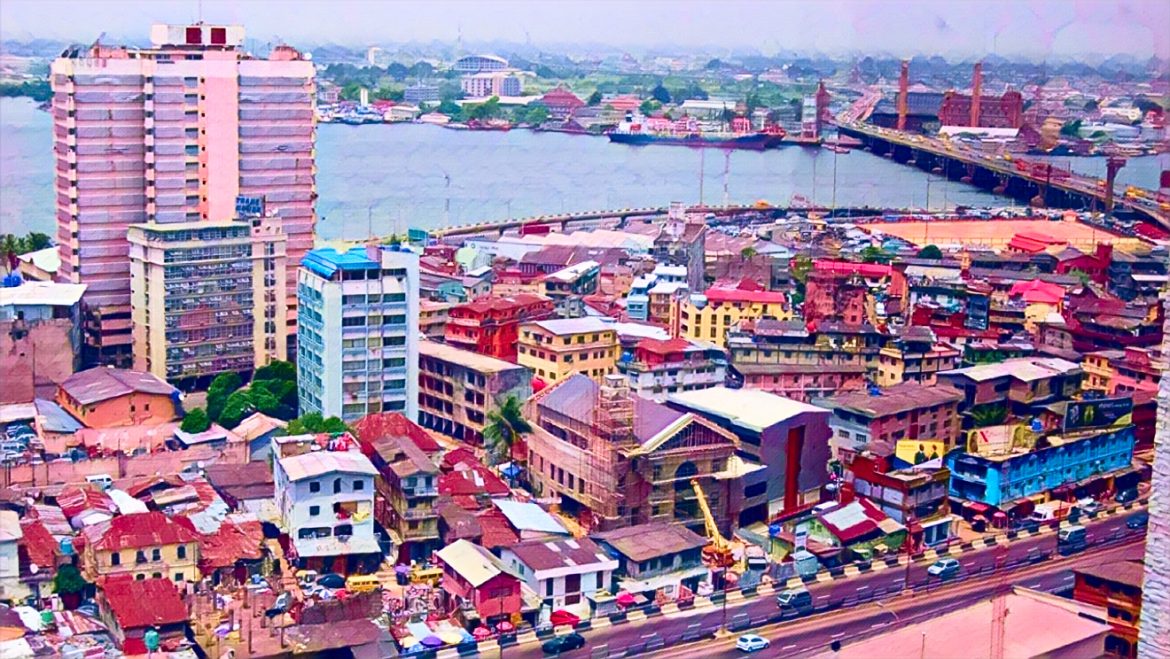KEY POINTS
- Lagos’s population growth is outpacing infrastructure, leading to a housing deficit of over 3.3 million units, with 50-75% of residents in informal housing.
- The city’s slums, including Makoko and Ajegunle, highlight poor living conditions, overcrowding, and lack of access to sanitation, clean water, and electricity.
- High rental costs and limited affordable housing are forcing low-income residents into informal settlements, exacerbating inequality and the city’s housing crisis.
Lagos, Nigeria’s economic nerve center and one of Africa’s fastest expanding cities, is undergoing rapid urban growth at an unmatched magnitude (Journal of contemporary urban affairs, 2023).
Pivotal to the nation’s growth as one of Africa’s largest economies, it boasts a population exceeding 20 million, serving as a hub for commerce, innovation, and culture drawing individuals from all over the nation and even abroad.
Population annual average growth rate is 3.2 percent, above the national growth rate of 2.6 percent. Lagos is projected to become the world’s most populous city by 2100, with 88.3 million (World Bank, 2023).
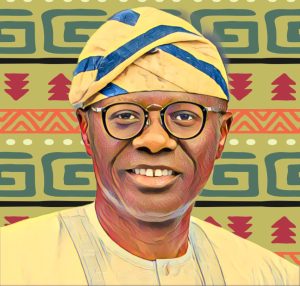
Governor Babajide Sanwo-Olu: Visionary Leader and the 15th Governor transforming Lagos State under its ambitious development agenda, THEMES, which focuses on Traffic Management, Health, Education, Economic Growth, and Security.
Its GDP climbed to N41 trillion ($26.5 billion) from N27 trillion ($17.4 billion) within during the first four years of Governor Babajide Sanwo-Olu’s administration.
It hosts the country’s busiest seaport, thriving industries, and a vibrant tech ecosystem, earning its nickname, “Africa’s Silicon Valley.”
Beyond economics, Lagos is a melting pot of cultures, reflecting Nigeria’s diversity while driving trends in art, fashion, and entertainment. Its strategic coastal location and dynamic population make Lagos indispensable to Nigeria’s global influence and domestic development.
However, the swift population expansion offers prospects and presents considerable difficulties, especially in housing.
The city’s rapid growth has outpaced infrastructure development, leading to a housing deficit estimated at over 3.3 million units, with 50-75 percent of the population living in informal housing.
The housing crisis in the city illustrates the wider socio-economic and infrastructural challenges confronting Lagos as it deals with the strains of urban growth.
Urban development and its effect on housing
Urbanization in Lagos is driven by the movement from rural areas to cities, natural population increases, and the city’s role as Nigeria’s economic hub.
Every year, countless individuals migrate to Lagos in pursuit of improved living conditions, increasing the need for housing (World Bank, 2023).
Nonetheless, the availability of suitable and affordable housing has not kept up, resulting in significant housing shortages.
In a recent report by BuyLetLive, about 98 percent of Lagos residents live in rented apartments and the housing deficit accounts for more than 3 million units.
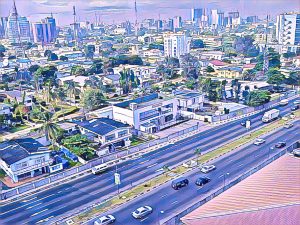
Lekki-Epe axis of Lagos State
This has created a significant gap between demand and supply which both state and private individuals have failed to bridge the supply gap.
The discrepancy between demand and supply has led to congested slums, soaring rental costs, and worsening living conditions.
Slums and informal settlements
According to a World Bank report, 50-75 percent of the population lives in informal housing; over 140 slums identified.
Areas like Makoko, Ajegunle, and Mushin underscore the harsh truth of the urban housing crisis.
These regions are marked by poorly built houses, insufficient sanitation, and restricted access to essential services such as clean water and electricity.
Makoko, frequently referred to as the “Venice of Africa,” is a floating shantytown where thousands inhabit stilt homes on the Lagos Lagoon.
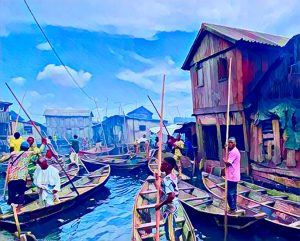
Makoko, frequently referred to as the “Venice of Africa,” is a floating shantytown where thousands inhabit stilt homes on the Lagos Lagoon.
Although it represents determination and a sense of community, it also highlights the shortcomings of urban planning and housing initiatives.
Overcrowding in these shantytowns leads to health issues, insecurity, and environmental decline, which in turn continues the cycle of poverty.
High cost of housing
For most Lagosians, affordable housing is just unattainable. The expenses for renting or purchasing real estate in Lagos are among the most elevated in Nigeria, fueled by soaring land costs, insufficient mortgage options, and inflation.
Middle and low-income individuals frequently devote more than 50 percent of their earnings to rent, resulting in minimal funds for other necessary expenses.
High-end real estate projects in places like Lekki and Ikoyi serve the wealthy, yet these developments largely overlook the requirements of the typical Lagos resident.
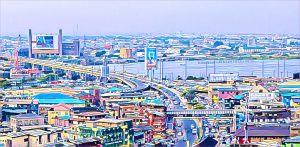
Lagos has is status as the fifth most affluent city in Africa
The shortage of affordable housing drives more individuals into informal settlements, perpetuating inequality and worsening the housing crisis.
Infrastructure deficits
Another significant aspect worsening Lagos’s housing issues is the insufficiency of urban infrastructure.
The transportation system in the city is overloaded, as traffic jams have become quite severe.
Individuals living in affordable housing regions frequently face lengthy travel times to their jobs because of inadequate transportation links.
Moreover, the absence of drainage systems and effective waste management in numerous areas renders housing inappropriate and unviable.
Flooding, a persistent problem in Lagos because of its coastal position, complicates the housing circumstances further.
Whole communities are often uprooted, exacerbating the hardships faced by individuals in at-risk regions.
Policy and governance deficiencies
Actions taken by successive administrations to address housing issues in Lagos have frequently been insufficient or poorly executed.
Public housing initiatives, including the Lagos State Housing Scheme, have not met their goals because of corruption, delays in bureaucracy, and insufficient funding.
Additionally, the process of land acquisition is filled with inefficiencies and conflicts, which deter private sector investment in affordable housing.
Tackling the housing crisis: possible remedies
Housing initiatives for affordability – The government should focus on affordable housing initiatives aimed at low- and middle-income individuals. Public-private partnerships (PPPs) can be essential in funding and advancing these initiatives.
Financial incentives like tax reductions and subsidies might motivate private developers to invest in affordable housing.
City development and governance: Effective urban planning is crucial for tackling Lagos’s housing issues. Officials should implement zoning regulations, oversee land utilization, and stop unlawful construction.
Enhancing slums through better infrastructure and services instead of tearing them down can offer prompt assistance to at-risk communities.
Home loan funding: Gaining access to mortgage funding is essential for facilitating home ownership. Increasing low-cost mortgage options and lowering interest rates will enhance housing accessibility.
Funding infrastructure development: Enhanced urban infrastructure is crucial for facilitating housing development. Enhancing transportation networks, constructing drainage systems, and improving utilities will increase the livability of housing areas and alleviate the strain on central business districts.

